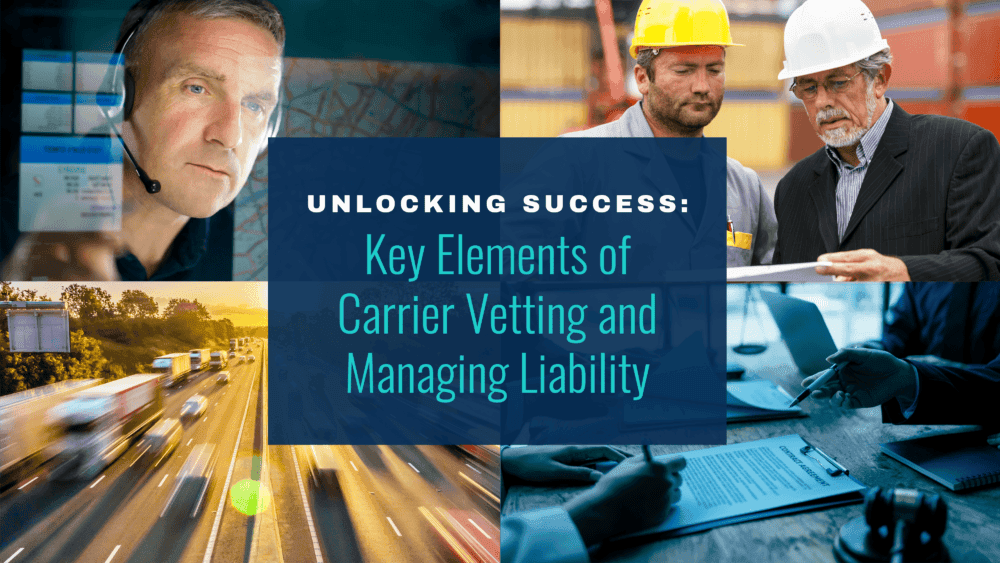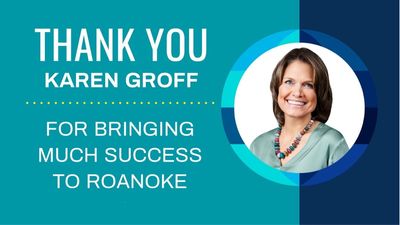July 02, 2024 | Industry Insights
Unlocking Success: The Key Elements of Carrier Vetting and Managing Liability

By: Andrew Johnson, Account Executive, Roanoke Insurance Group Inc.
The freight brokerage industry as we know it today began in the late 1970s and early 1980s, around the time of the Motor Carrier Act of 1980. Before the passage of this landmark legislation, regulations were too restrictive to make freight brokerage a viable business segment.
Fast-forward to today, and most motor carriers, by authority definition, also have a freight brokerage operation. Freight brokerages fulfill a vital service in modern logistics, connecting independent carriers with loads and drastically reducing empty repositioning moves. Brokering also allows carriers to complement their assets by having other carriers and owner-operators step in when their trucks are unavailable. Brokering lowers the transit costs for shippers, as they no longer pay for equipment repositioning to pick up their loads.
Carrier vetting is paramount for brokers, whether you own a freight brokerage operation as a carrier and use other truckers or operate solely as a broker. However, while carrier vetting significantly reduces risk for brokers, you must also navigate contract and insurance risk. Contract risk occurs every time a load is hauled, whether it is or isn’t under a written agreement. Insurance risk is the danger of not transferring risk in a balanced and appropriate manner.
The Four Cornerstones to Carrier Vetting
1. Identify a risk partner and take steps to limit your risk.
2. Develop standards for carrier safety.
3. Implement a carrier review program and ensure agreements are in place.
4. Evaluate your risks and audit your process.
Identify a risk partner and take steps to limit your risk.
Having a knowledgeable risk partner is critical to a substantial risk program. Most brokers don’t have a risk manager or compliance officer on staff and rely on an individual who doesn’t understand risk and how to limit it.
When selecting an insurance provider, consider more than just price. A risk partner with expertise and experience in transportation contracts, up to date on current regulations and litigation affecting brokers, and knowledgeable on the different products available to respond to the various exposures a broker faces will guide you on how to transfer risk through insurance, indemnification clauses in contractual agreements, and risk retention. Always ask questions of your risk provider. Get their insurance opinion on claims matters and get in front of an issue before it becomes more significant than if you had addressed it immediately. Not all risks are transferable, and your risk partner should be able to clearly explain what risks can and can’t be transferred.
Develop standards for carrier safety.
Arguably, the biggest question facing brokers today is how to balance getting the most competitive price while limiting overall risk when selecting carriers to haul freight on behalf of their clients. This process begins with performing carrier due diligence selection based on your risk program.
It would be best if you established criteria for carrier selection to find and maintain reliable partners. The requirements may include the amount of insurance the carriers retain, their safety ratings, and their level of active authority. Understanding, setting, and following the criteria you establish is critical. If something goes wrong, you’ll be accountable for choosing the carrier.
Implement a carrier review program and ensure agreements are in place.
The industry standard to evaluate and select your carriers starts with having access to carrier information. Many third parties offer carrier-vetting assistance (mainly for a fee) so your employees can make informed decisions. Of course, the data is only as good as those entering it and will likely be insufficient for new carriers.
Using carriers with a good history is the best place to start. Check the carrier’s address and how long it has been at the location. If a suite number is in the thousands in a building not large enough to hold that many suites, that’s a red flag. If it’s a house address with ten trucks listed, dig deeper. Also, check the carrier’s name and ownership.
Check the carrier’s inspection and violation history. If a carrier’s inspections show vehicles operating under many different motor carriers or it has significant violations resulting in out of service events, review this against the standards you set for carrier vetting. Also, frequent name and ownership changes can obscure a carrier’s history.
Be wary of violations relating to logbooks, medical, substance abuse, and a lack of CDLs. Carriers should address these critical items in their safety plans.
Ensuring strong contractual agreements with your carriers and shippers is also essential. Too often, using contractual agreements as a method of risk transfer is overlooked. Get qualified legal representation for agreements complex in nature. Standard agreements provided by trade associations are well vetted but fall short of protecting your interests as a broker. Ensure you know what risks you want to transfer and what risks you are willing to retain via the contract’s provisions. Moreover, remember, a contract is only good if you enforce it. If you don’t plan to implement the contract via litigation, don’t rely on transferring your risk via a contractual agreement.
There should be a clear delineation of your role as a broker. Too often, brokers take control of the shipment, designating specific pickup and drop-off times, routes, and other information. By so doing, you open yourself up to additional exposures if there is a loss. Until recently, the courts have found brokers vicariously liable in carrier accidents. Freight brokers who become too involved in a carrier’s daily operations may be held liable for the carrier’s actions, even if they did not contribute to the accident or damage caused by the carrier’s driver. However, in the past couple of years, certain appellate districts have not held brokers liable in carrier-related litigation, but this continues to be an ongoing area of legal dispute.
Evaluate your risks and audit your process.
Ensure you understand your risks and continually monitor your exposures, including how emerging trends and court cases will impact your business and the brokerage industry. Review new best practices and industry resources to mitigate your risk. Your risk partner can assist in this area.
Having a well-rounded risk approach in today’s complex logistics environment is essential. No risk strategy can cover all exposures; some will likely be retained and not transferred. Offer your shippers Cargo insurance and be clear about your role and liability to your customers. Let shippers know that a carrier’s insurance protects the carrier, not the shipper. Resist signing contracts that replace the carrier’s liability with yours. The right insurance broker plays an essential role in helping you manage risk and protect your bottom line. Choose wisely.
About the Author:
Andrew Johnson is an account executive in the Roanoke Houston office with over 14 years logistics industry experience. He previously worked in the freight forwarding industry as a risk manager in charge of carrier vetting and project supervisor. His resume also includes operations, insurance, contracts, and claims expertise. Andrew began his career with a class-one railroad handling freight claims and emergency response, derailments, cargo salvage and was responsible for customer care in loading railcars.
Disclaimer: This information is provided as a public service and for discussion of the subject in general. It is not to be construed as legal advice. Readers are urged to seek professional or legal guidance from appropriate parties on all matters mentioned herein.













